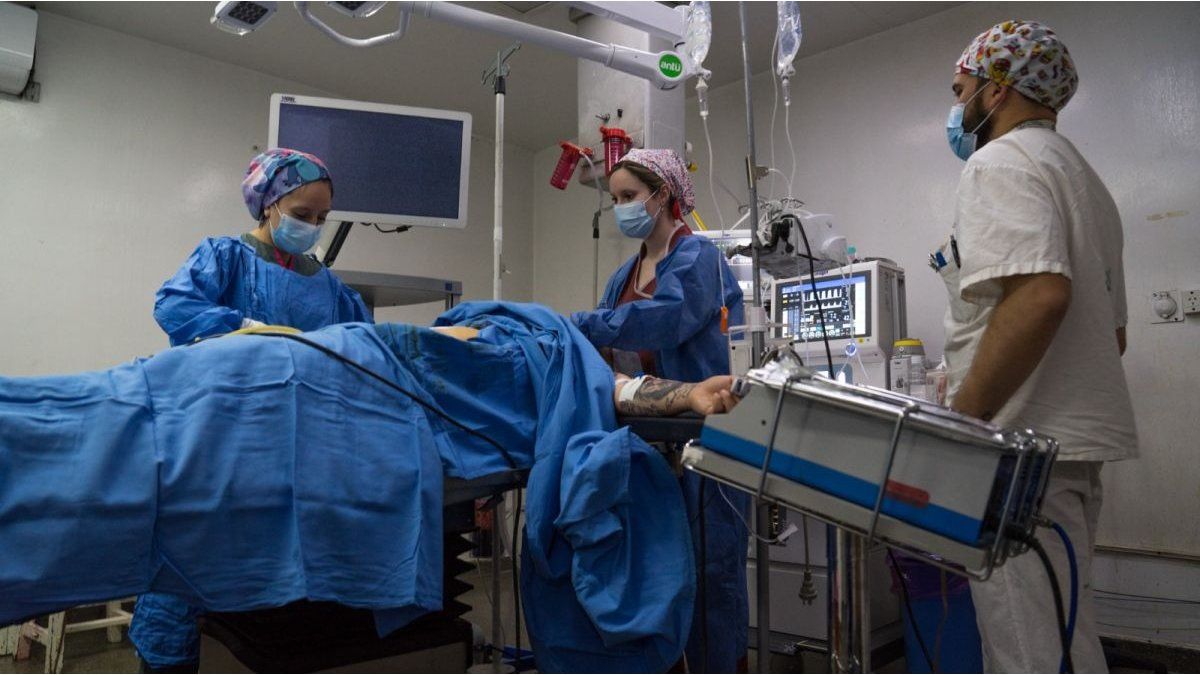The Government will exempt health centers from employer charges in exchange for the freeze that it imposed on prepaid
A tax forgiveness that will exceed by at least one quarter the mandate of Alberto Fernandez. with that promise Sergio Massa managed to contain the clinics and sanatoriums from the private sector that were already beginning to collect bonuses or co-payments from their affiliates, thus aligning the item in the freezing of prepaid rates that will be in effect from October to December. This is the most sensitive link in the health chain: that is, the companies that pay doctors and workers and that are financed from the private and public sectors.
The content you want to access is exclusive to subscribers.
The benefit, of imminent validation through a decree that will be published in the Official Gazette, was confirmed to Ámbito by leaders of the sector. It will reach two taxes: the employer contributions and check tax. Although the activity had already been subject to exemptions, especially during the pandemic, they had now formally recovered the usual levels of taxation. In any case, in the clinics and sanatoriums themselves they admitted that the most frequent norm is non-payment.


The main commitment that Massa assumed with the health establishments grouped in Adecra was total exemption from the collection of employer contributions. Until December of this year, a decree is in force that reduces these payments to 50%. The facility refers to another decree, on 300 of 2020, in the midst of the coronavirus pandemic, when clinics and sanatoriums were also helped with a total forgiveness of charges and then, as extensions were signed, it was attenuated by half.
It was also agreed a reduction in the tax rate on the check. This tax, which in most activities represents 1.2% of each transaction through this means of payment, will be between 0.025 and 0.05% in the health category, depending on how the fine print is resolved. of the decree in preparation. In any case, it will represent a relief in the financial management of the companies.
On both taxes, it is expected that the reduction will be enshrined until March 2024 inclusive, a quarter after the inauguration of the new government that will emerge from the next general elections. With this commitment, the collection of co-payments that some establishments had announced to their affiliates was rendered null and void.
For case, the Southern Hospital had communicated that it initiated the perception of “a contribution bonus at the time of care” with variable costs according to the type of benefit: among them he mentioned $15,000 for outpatient surgeries; $20,000 for surgeries without hospitalization and the same amount for those that required hospitalization; the same amount for deliveries and cesarean sections, or $10,000 for hemodynamics or endoscopy. He also issued bonuses for outpatient and emergency consultations, which, although they were presented as voluntary, were mandatory.
Along with this announcement, which the Austral authorities later removed from their website, other private health centers such as the German, British or Italian hospitals, as well as the Favaloro and Fleni clinics, they were getting ready to make co-payments with similar characteristics known. These measures coincided with a negotiation carried out by Massa with the prepaid companies grouped in the UAS that ended up defining a rate freeze until December.
It is estimated that two thirds of the population is cared for in private health centers, that is, some 30 million people, between direct affiliates or patients of prepaid and obras sociales that hire them as providers. In the sector they said that as part of the negotiation the Government prohibited co-payments but at the same time warned that there may be companies that will maintain their perception in an underhanded way.
Another striking fact of the negotiation is that part of the benefit is enjoyed de facto by the clinics and sanatoriums that for years have been delaying or avoiding the payment of employer contributions. This evasion, which harms social security, is based on an article of the emergency law that governs health that prevents the AFIP from seizing such entities.
mmartin@ambito.com.ar
Source: Ambito
David William is a talented author who has made a name for himself in the world of writing. He is a professional author who writes on a wide range of topics, from general interest to opinion news. David is currently working as a writer at 24 hours worlds where he brings his unique perspective and in-depth research to his articles, making them both informative and engaging.




